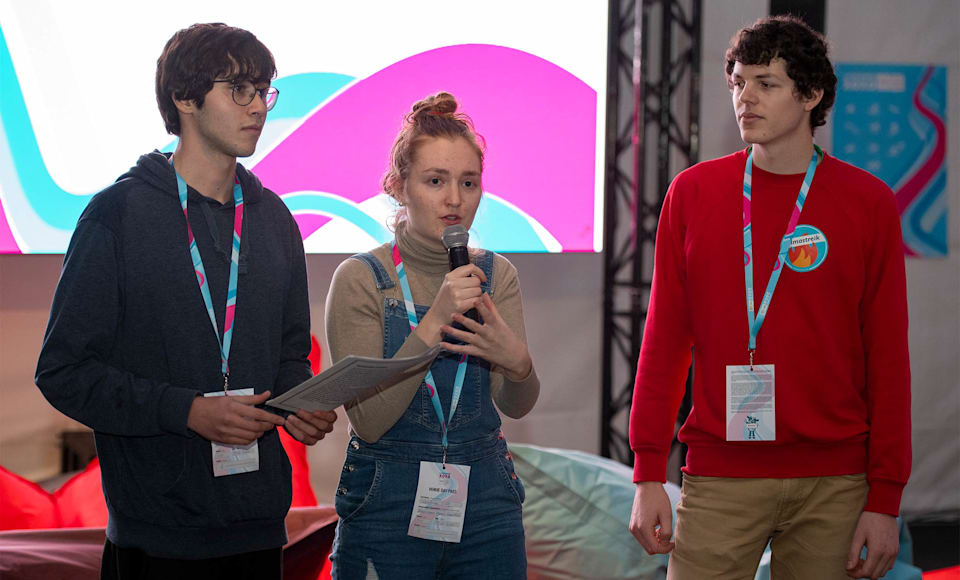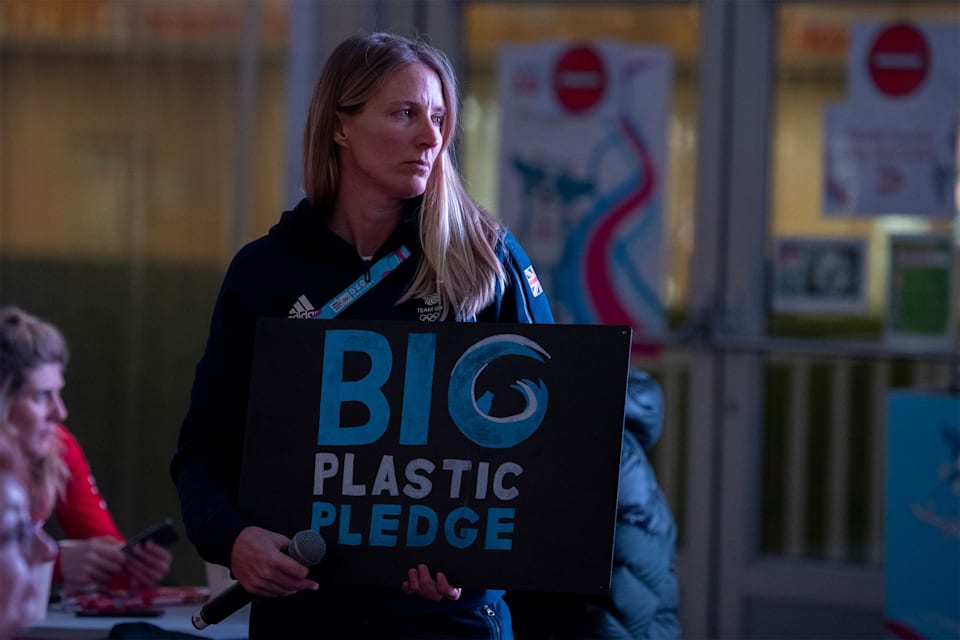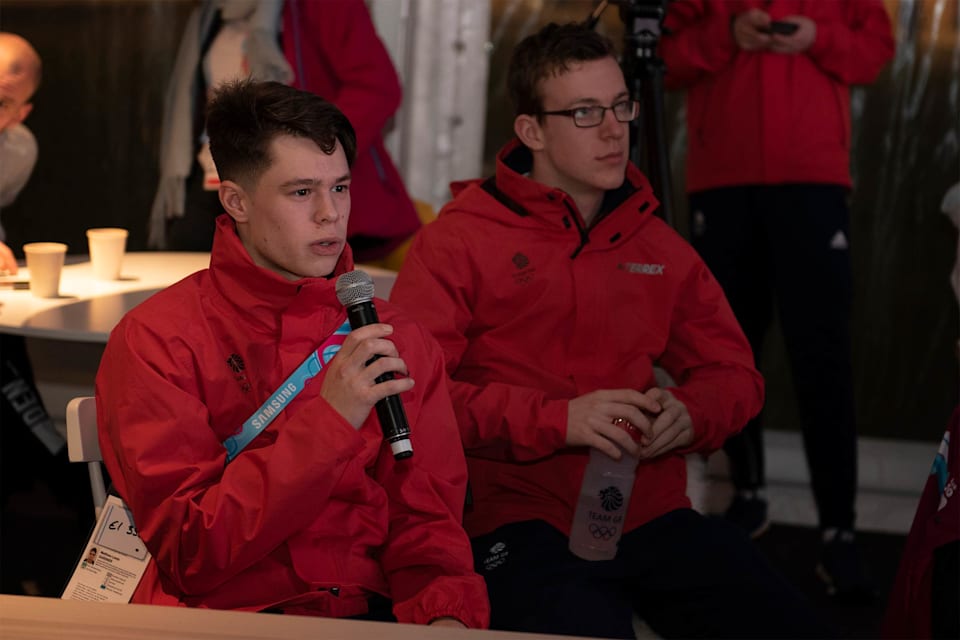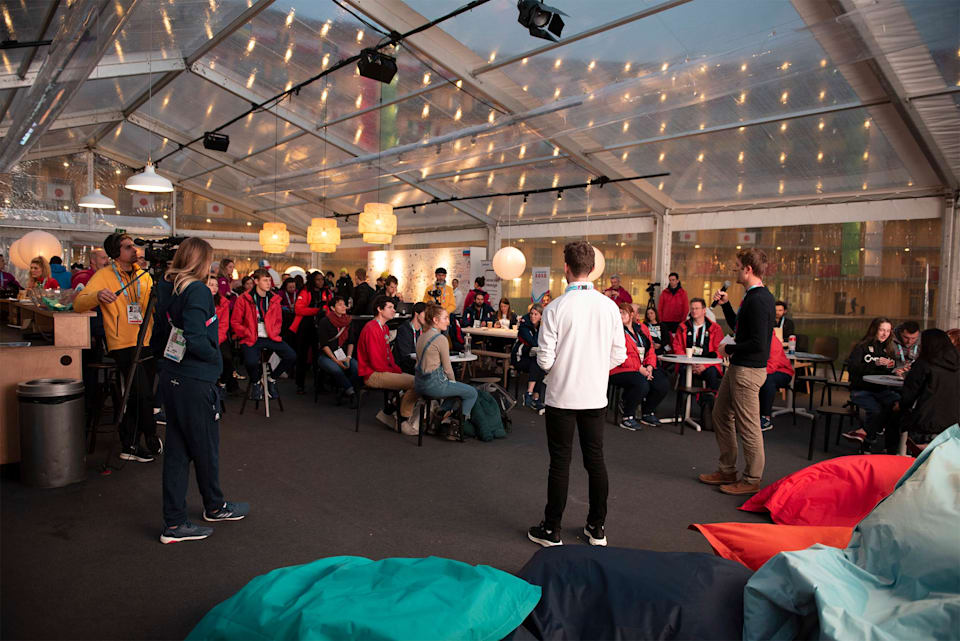University of Lausanne joins climate discussion at the YOG
On 17 January, following a march for climate in Lausanne in the presence of Greta Thunberg, activists and academics joined a discussion in the Youth Olympic Village which addressed how athletes can reduce their environmental impact and use their platform to raise awareness about climate change. The event was facilitated by the University of Lausanne (UNIL).
Hours after climate activist Greta Thunberg had addressed the climate strike in Lausanne en route to next week’s World Economic Forum in Davos, three climate activists who attended the strike headed for the Youth Olympic Village at the Vortex building to engage with a number of young athletes who are competing at the 3rd Winter Youth Olympic Games (YOG).
The three inspirational young people – Loukina Tille, Hamza Palma and Elias Jordan – were joined by Augustin Fragnière, who is Sustainability Project Manager at UNIL, and IOC Young Leader Eric Mitchell to initiate a vibrant discussion around climate change and how athletes can make a difference.

“I watched winter sporting venues that previously had reliable snowfall suddenly have to be brought snow by the trainload,” Mitchell told the room. “I saw first-hand what the impact of a changing climate will do for winter sport, and as winter athletes we will all see this impact.”
Also present at the discussion were British Olympic gold medallist Saskia Clark, whose former sailing partner Hannah Mills launched the Big Plastic Pledge last year to unite athletes and fans around the issues of plastic pollution, and Lausanne 2020 President Virginie Faivre.

“We’ve been working hard to try to innovate and lower the environmental impact,” said Faivre as she spoke about a number of sustainable initiatives implemented by the Organising Committee, including encouraging athletes to travel to venues by public transport and creating a venue plan which required no new construction. Faivre, who is proud of YOG that are perfectly in step with the IOC’s focus on sustainability and using existing facilities when hosting the Olympic Games, also told the young athletes in attendance to act as ambassadors in the global movement to tackle climate change.
“You are young athletes and you can make a difference,” she said. “You are the future.”
The floor was then opened to the athletes to raise points for discussion about what more they can do to contribute, from raising awareness through their sporting platform to reducing their carbon footprint.

“I think the impact of climate change is very important for our sport,” said Italian cross-country skier Simone Mastrobattista. “We have to change, and we have to think more about what we can do.”
British short track speed skater Matthew Gardner asked those working in the senior levels of sport to put greater emphasis on environmental issues in their sporting education.
“I feel like we’re quite uneducated about this,” he said. “I think all the sports could help teach their athletes more on this topic, and I hope our coaches will teach us more.”
To finish, Clark challenged the young athletes in attendance to commit to a minimum of three of the nine pledges of the Big Plastic Pledge while they’re at the Lausanne 2020 YOG, and encouraged them to join the global campaign.

“We want some athletes who are going to passionately change their behaviours and lead the way in changing how we treat this world,” she said.
Last year the University of Lausanne had already organised a climate conference with Greta Thunberg which had resulted in the publication of the Lausanne climate declaration.